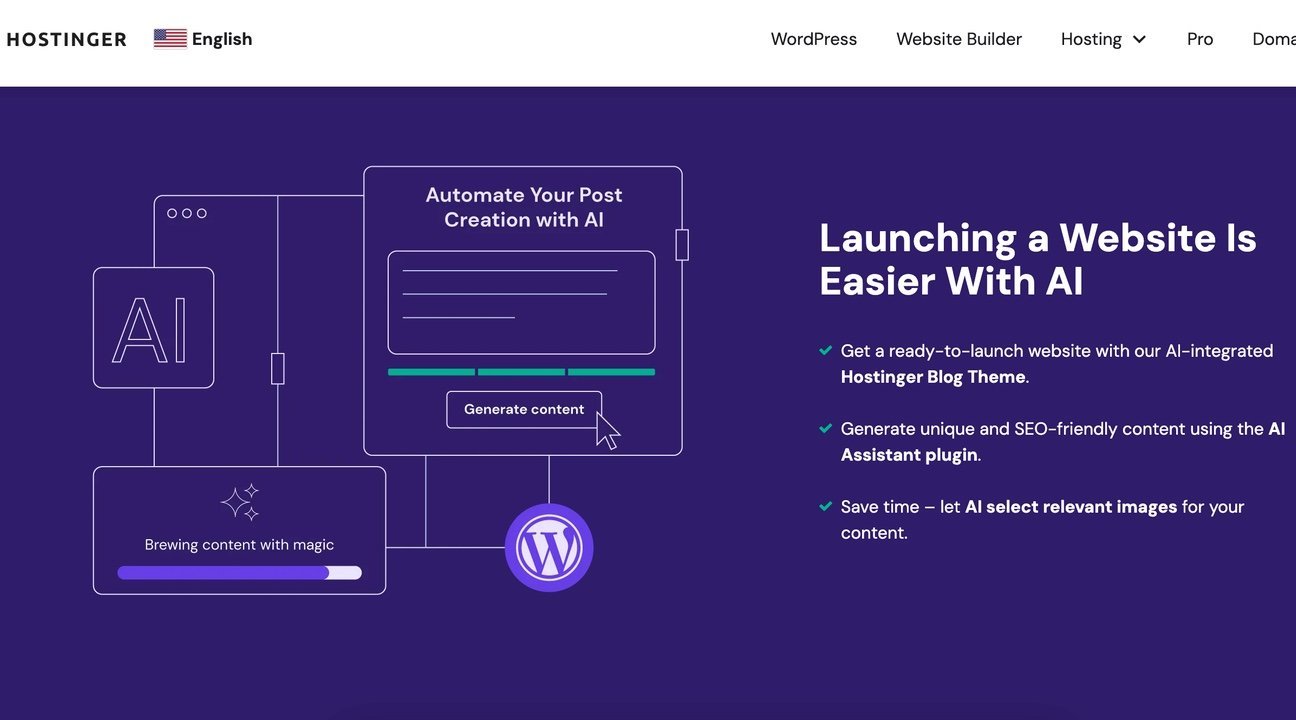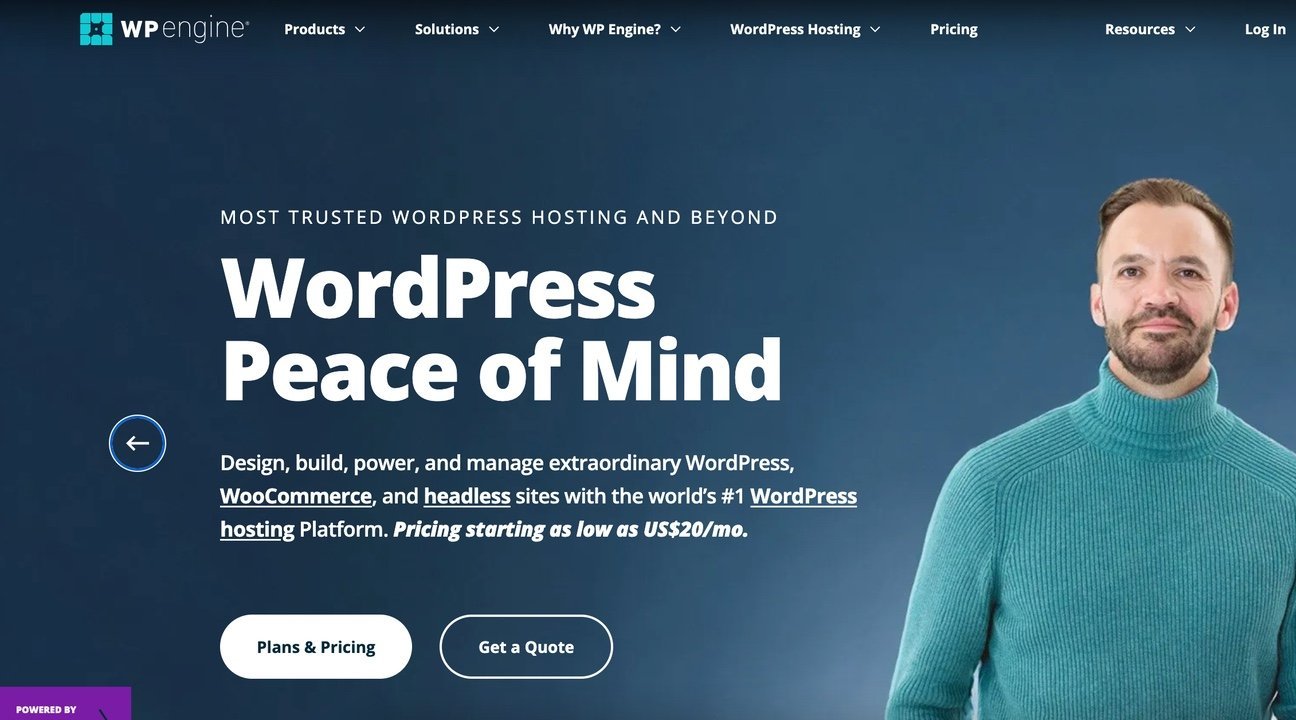With WordPress powering over 60% of CMS-based websites, selecting the right hosting provider is critical for performance, security, and scalability. Our deep dive compares top-tier solutions from budget-friendly options like Hostinger to enterprise-grade platforms like WordPress VIP, analyzing technical specs, pricing models, and real-world use cases for developers. Discover which provider aligns with your project's technical requirements and growth trajectory.

WordPress dominates the content management system landscape, underpinning 61% of all CMS-driven websites according to W3Techs. Its appeal lies in eliminating coding barriers—no HTML or CSS expertise required. Yet the foundation matters: Your hosting provider dictates site reliability, security posture, and scalability. After rigorous testing and evaluation, we've curated the top WordPress hosting solutions for 2025 tailored to diverse technical needs.
Top WordPress Hosting Providers: Technical Breakdown
| Provider | Starting Price | Key Strengths | Ideal For |
|---|---|---|---|
| Hostinger | $3/month | AI tools, WordPress acceleration | Budget-conscious projects |
| WP Engine | $25/month | Transferable installs, ISO 27001 | Scalable business applications |
| ScalaHosting | $3/month | Flexible storage, free SSL | Storage-heavy sites |
| Pagely | $375/month | AWS infrastructure, 99.9%+ uptime | Mission-critical enterprise deployments |
| WordPress VIP | Custom Quote | Parse.ly analytics, API Mesh | Custom-managed enterprise solutions |
1. Hostinger: The Cost-Effective Powerhouse
 Why Developers Choose It: Hostinger merges affordability ($3/month starter plan) with robust features:
Why Developers Choose It: Hostinger merges affordability ($3/month starter plan) with robust features:
- One-click WordPress installation
- DDoS protection and vulnerability scanning
- AI-driven site-building tools
- Support for 300+ sites on higher tiers
Technical Caveat: Basic plans exclude e-commerce functionality. Ideal for side projects or SMBs but lacks elasticity for rapid enterprise scaling.
2. WP Engine: Scalability Engineered
 Enterprise-Grade Features:
Enterprise-Grade Features:
"Transferable installs eliminate migration nightmares. Push/pull databases and plugins seamlessly between environments." — ZDNET Testing
- Headless WordPress support
- ISO 27001:2022 certified infrastructure
- Automated rollbacks and staging
Priced from $25/month, it’s optimized for businesses anticipating growth spikes.
3. Pagely: AWS-Powered Enterprise Resilience
Technical Highlights:
- Decoupled database architecture
- Managed DevOps and custom CPU/RAM allocation
- 50GB+ storage baseline
ZDNET’s David Gewirtz attests:
"Hosting atop AWS means zero server reliability headaches. Pagely’s support resolves crises that would cripple self-managed setups."
Critical Selection Criteria for Technical Teams
- Scalability Architecture: Can the host handle 10x traffic surges? WP Engine and Pagely excel here.
- Security Protocols: Verify ISO certifications, DDoS mitigation, and patching SLAs.
- Infrastructure Flexibility: Need AWS/GCP integration? Pagely and WordPress VIP offer cloud-native stacks.
- DevOps Support: Managed services (e.g., Pagely’s DevOps) reduce administrative overhead.
# Example: Migrating WordPress via WP-CLI
wp db export && wp plugin list --format=json > config.json
The Hidden Costs of "Cheap" Hosting
Introductory $1-$3/month plans often jump to $10-$15/month upon renewal. ScalaHosting’s $3 entry tier leaps to $13/month after year one. Audit long-term TCO before committing. For high-traffic sites, investing in scalable infrastructure (e.g., WP Engine) prevents costly migrations later.
Why Your Host Choice Impacts Security Posture
Recent vulnerabilities like the Ocean Extra plugin XSS flaw highlight shared hosting risks. Enterprise providers (Pagely, WordPress VIP) implement:
- Real-time threat detection
- Isolated containers
- Automated patching
For developers, this means less firefighting and more feature development.
Selecting WordPress hosting isn’t just about uptime—it’s about aligning infrastructure with your application’s lifecycle. Budget-friendly hosts streamline launches, while platforms like WordPress VIP future-proof enterprise ecosystems. As headless and API-driven architectures gain traction, ensure your provider evolves beyond basic LAMP stacks. Ultimately, the right host isn’t a vendor; it’s a force multiplier for your technical ambitions.
Source: ZDNET (September 2025)

Comments
Please log in or register to join the discussion